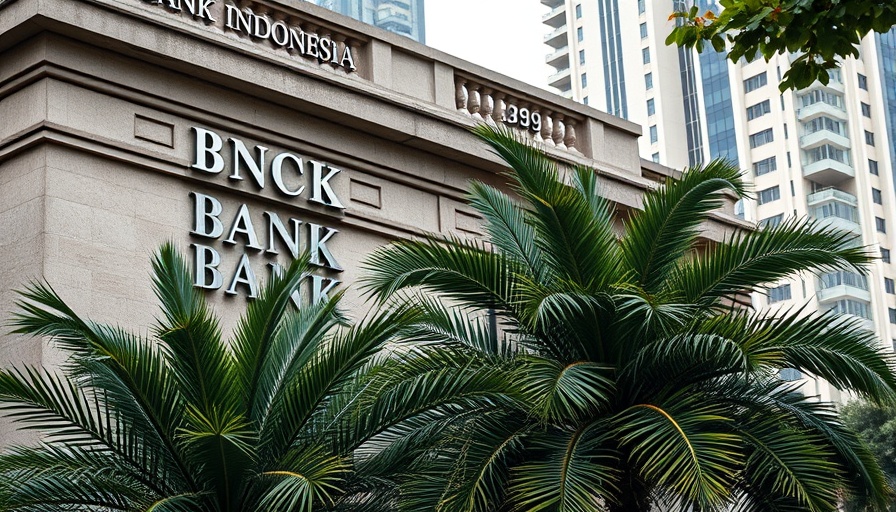
Bank Indonesia's Decision: A Steady Rate Amid Economic Shifts
Bank Indonesia has decided to maintain its benchmark interest rate at 5.50% on June 18, a move that reflects the central bank's strategy to balance inflation and economic growth. This decision comes as Indonesia's economy faces numerous challenges, including rising commodity prices and external market pressures.
The Role of Interest Rates in Economic Stability
Interest rates serve as a vital tool for central banks to regulate their economies. By keeping the rate steady, Bank Indonesia aims to stabilize inflation and encourage investment in various sectors. With inflation rates currently under control, this decision reassures investors about the central bank's commitment to maintaining economic stability.
Implications for Investors: What This Means for Investment Strategies
The decision to hold rates steady impacts multiple investment avenues, particularly in the realms of stocks, bonds, and real estate. Investors can expect relative stability in asset prices, encouraging long-term strategies such as buy-and-hold investing and portfolio diversification.
For those interested in currency markets, the Indonesian Rupiah may experience increased steadiness as foreign investments follow the Bank's cautious monetary policy.
Market Reactions: A Mixed Bag
Market analysts have responded to the news with mixed reactions. Some believe it may attract foreign investment, while others are concerned about potential stagnation in economic growth if the global economic climate shifts unfavorably. This underlines the importance of risk management in investing today as global dynamics evolve.
Future Predictions: Economic Outlook in the Wake of the Decision
Looking towards the future, economists are closely monitoring upcoming economic indicators. Should inflation trend upward or external challenges surface, Bank Indonesia may be compelled to adjust interest rates. Conversely, if the economy shows signs of resilience, we could see continued investments in real estate and dividend stocks.
Investors should remain flexible in their strategies, ready to pivot according to changing market conditions, including investing in technology stocks or exploring impact investing opportunities.
Social Impact: Beyond the Numbers
The decision also carries societal implications. A stable financial environment can lead to improved employment rates and better living conditions for Indonesians. As confidence in the economy grows, so may opportunities for small businesses and local investments, which can strengthen community ties and foster economic independence.
Conclusion
In conclusion, while Bank Indonesia's decision to hold rates at 5.50% may seem like a measured approach to economic management, it opens up a myriad of opportunities and challenges for different investor segments. Being informed and adaptable will be key going forward.
Understanding the implications of interest rates on investment strategy is critical. Whether you're exploring mutual funds, REITs, or other investment vehicles, staying updated on such decisions will empower you to make more informed choices in your investment journey.
 Add Row
Add Row  Add
Add 



Write A Comment